This article first appeared on the Lawfare blog.
There is a classic joke about the difference between an optimist and a pessimist—an experiment in which two children are put in a room to play. The pessimist enters a room full of toys and sits there wailing disconsolately, saying, “Something is going to break.” The optimist enters a room piled high with horse manure and begins rummaging through it enthusiastically, because, “With all this shit, I know there’s got to be a pony somewhere!”
On the same day that @realDonaldTrump fired his secretary of state by tweet and his body man was marched off the White House grounds because of a reported investigation of financial irregularities—in a week during which the White House has so far voiced dissatisfaction with two other cabinet secretaries and the crap pile of ethical issues among presidential appointees got higher—the White House announced two quality nominations for the Privacy and Civil Liberties Oversight Board (PCLOB). Those, at least, offer something to be optimistic about.
The planned nominations are of Edward Felten, currently a professor of computer science and public policy at Princeton, and Jane Nitze, a former lawyer in the Justice Department Office of Legal Counsel (OLC). Felten also served as deputy chief technology officer in the White House Office of Science & Technology Policy during the Obama administration, as well as chief technologist at the Federal Trade Commission. Nitze was a law clerk both to Justice Neil Gorsuch when he was on the Tenth Circuit Court of Appeals and to Justice Sonia Sotomayor on the Supreme Court, and has been a lecturer at Harvard Law School. She returned for another stint with Gorsuch when he joined the Supreme Court.
The Felten nomination is inspired. As a technologist and the first non-lawyer on the board, Felten would add a valuable dimension to the PCLOB’s work. And he is not just any technologist. At Princeton, he has been a leader on computer security and authentication, including election security. In the White House, he was deeply involved not only in cybersecurity, but also the encryption debate and artificial intelligence study among other issues. His breadth of experience in the field and in government give him a broad understanding of privacy and security issues and the policy landscape, along with familiarity with all stakeholders.
Nitze has sterling legal credentials and is well-regarded by Obama administration lawyers who worked with her when she was at OLC. She is more of a blank slate when it comes to privacy, and her clerkships for both liberal and conservative justices makes for wide-open guessing about her leanings.
Interestingly, though, Nitze clerked for Justice Sotomayor during the 2012 Supreme Court term, when the court decided U.S. v. Jones—the justices’ first real encounter with digital surveillance. The court held unanimously that placing a tracking device on a car constitutes a search under the Fourth Amendment and requires a warrant. The opinion of the court by Justice Antonin Scalia focused on the intrusion into personal property involved in placing the device on the car, but Sotomayor’s thoughtful concurrence expressed concern about the ability of broad surveillance to compile “the sum of one’s public movements” and questioned whether the time had come for the court to revisit the third party doctrine. Whether or not Jane Nitze had any hand in this opinion, she must be thoroughly familiar with the thinking involved—that’s promising for the PCLOB.
The PCLOB has been running on a single cylinder for almost two years following the departure of Chairman David Medine in 2016 and the subsequent resignations of other, part-time commissioners. Elizabeth Collins has been the sole member, able to oversee ministerial reports and able to give advice to agencies in her individual capacity. Until recently, the PCLOB could not take actions as a board—like issuing reports or initiating investigations—without a chair. (Congress obviated this impediment with the reauthorization of Section 702 of FISA in January, which includes a provision authorizing a majority of commissioners to exercise the power of the PCLOB chair if the chair is vacant. The board still requires a quorum to act, though.)
Among other things, the absence of a chair and a quorum has prevented the PCLOB from issuing its long-awaited report on the conduct of surveillance under Executive Order 12333. The PCLOB’s 2014 report on FISA Section 702 surveillance, along with the parallel report of President Obama’s special review group in 2013, were important to increasing transparency. They reassured the European Commission that Section 702 involves targeted surveillance rather than massive and indiscriminate collection of personal data coming from Europe to the U.S., which enabled the Commission to approve the Privacy Shield framework for transatlantic data flows. A 12,333 report could permit a similar fact-based discussion in place of anecdotes from news reports on the Snowden documents.
In any event, the nomination of Adam Klein to chair the PCLOB is now awaiting a Senate vote. If the Senate takes action on this nomination along with Felten’s and Nitze’s, the PCLOB could be back to full operation with almost all cylinders. I don’t know if I will agree with all the work this new board produces, but I do anticipate that it will be thorough and thoughtful.
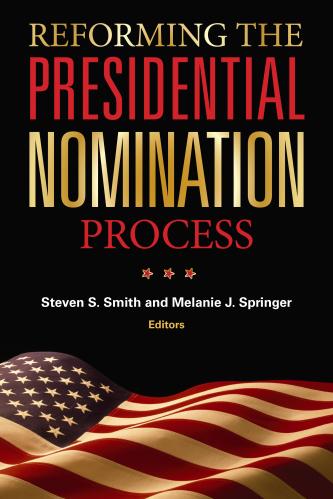
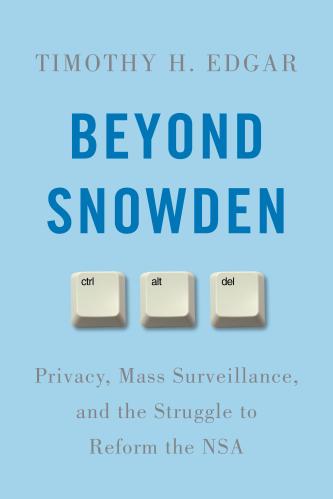
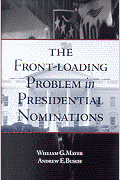

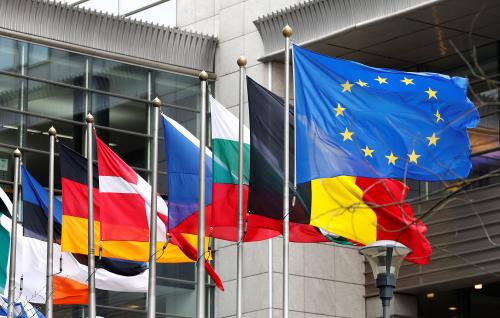

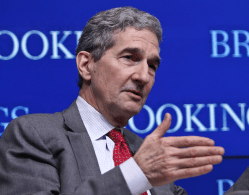

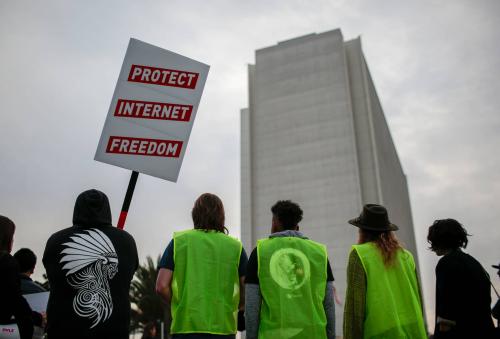

Commentary
White House nominations to privacy board offer a pleasant surprise
March 16, 2018